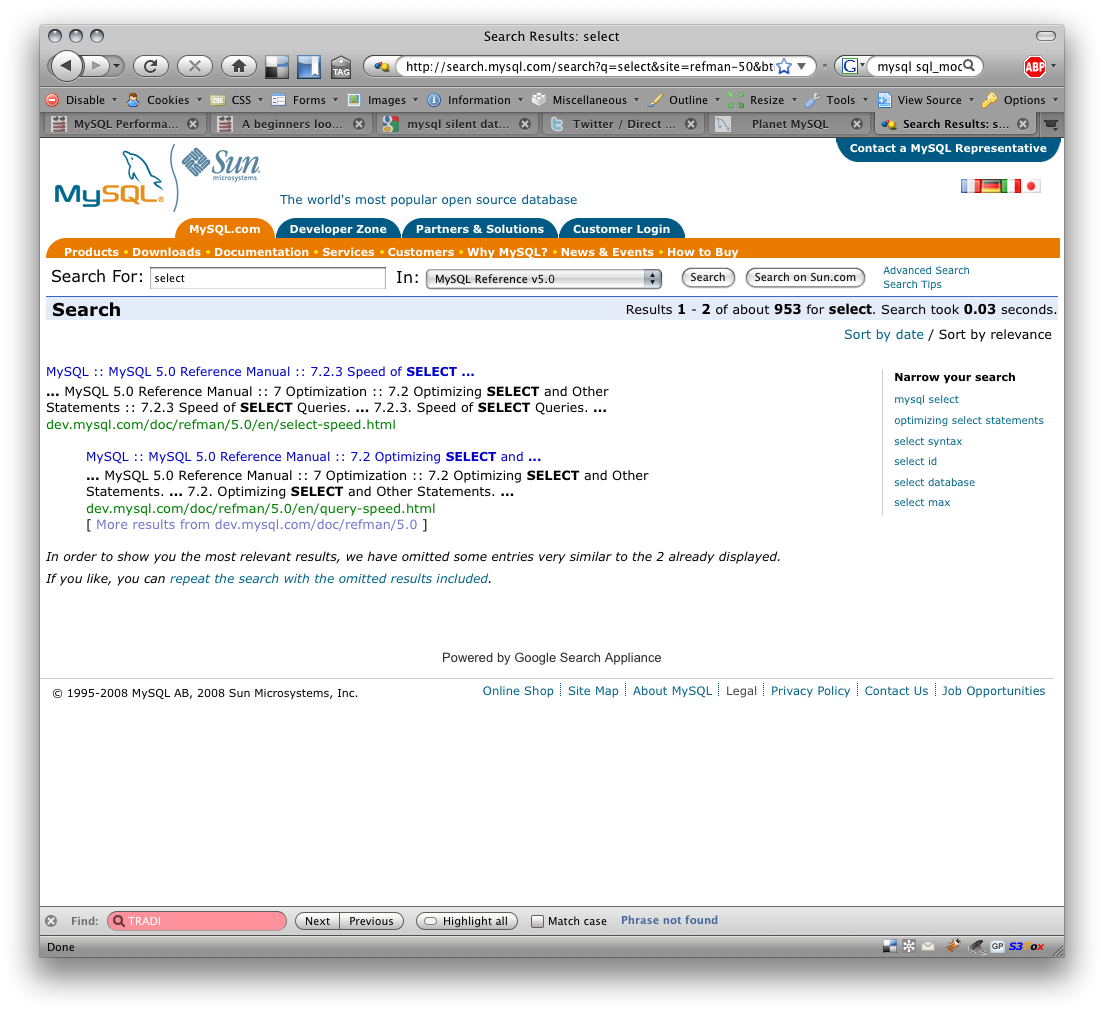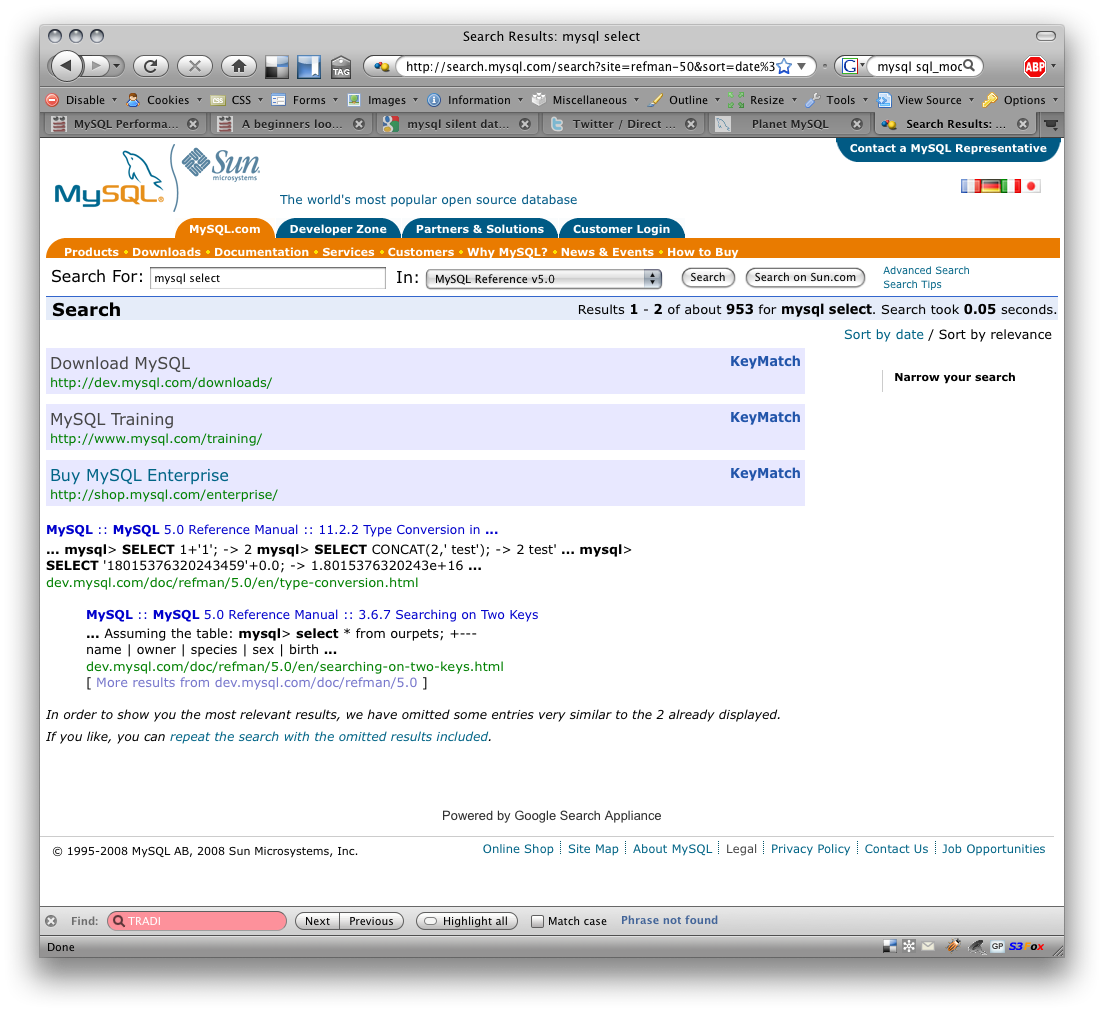Mosso the Rackspace Cloud now has a Drizzle developer image much like the first Drizzle AMI on EC2.
The Mosso interface is definitely different, it’s a GUI, and I definitely prefer CLI, but it’s a simpler navigation for a new user. I suspect an API may be available.
I had an issue with the backup process, more the lack of feedback. The Knowledge Base didn’t help, so both calling and Live Chat directed me ultimately to the same person. I also found a bug in the backup process, that is being able to select an incomplete backup to try and launch a new server. I talked to Support about and apparently already known.
And in true open source form, the Drizzle version is actually one point higher then yesterday’s AWS image.
I don’t know how to *publish* this backup so others can try it. Something on the list of things to do, however I was able to verify my backup with a new instance.
$ drizzle Welcome to the Drizzle client.. Commands end with ; or g. Your Drizzle connection id is 2 Server version: 2009.04.998 Source distribution Type 'help;' or 'h' for help. Type 'c' to clear the buffer. drizzle> drizzle> select version(); +-------------+ | version() | +-------------+ | 2009.04.998 | +-------------+ 1 row in set (0 sec) drizzle> select count(*) from sakila.film; +----------+ | count(*) | +----------+ | 1000 | +----------+ 1 row in set (0.18 sec)

